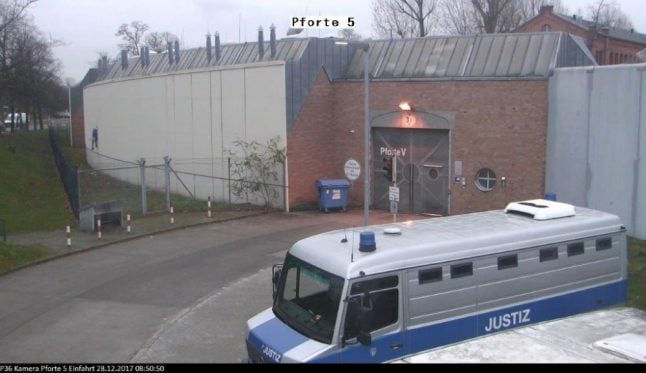But one of the two recent fugitives returned the same evening on Monday.
The New Year's escapees had special terms of detention and were allowed to leave the prison in Berlin's Charlottenburg district for specific amounts of time, according to a prison spokesman.
While the two, aged 44 and 21, could have walked freely out of the main entrance, they instead got out by manipulating a lattice grid on a window in a fellow prisoner's cell.
“It doesn't make any sense,” said speaker for senator of justice Dirk Behrendt (Greens). “It's happening more and more that inmates with special terms do not return or abuse the conditions.”
Their sentences for unpaid fines were from December 2nd until March 31st while another would have served a sentence from December 15th to February 18th.
The previous Thursday, four prisoners aged between 27 and 38 had managed to escape from the same prison by using a heavy hammer and an angle grinder. The four had access to such tools because they worked in an auto repair shop on the prison's campus. They had gone to the boiler room and used the tools to cut through a ventilator and into free space.
Police launched a major search for the four, who have been in prison since last year serving sentences for crimes such as theft, predatory blackmail and serious assault. The search, however, does not yet include the release of photos of the escapees. A judge or prosecutor can order the use of photographs when all other methods have been exhausted.
After the four escaped, the following day, prison authorities realized that a fifth prisoner with special privileges to leave and return to the prison, had not returned on Thursday evening.
Six inmates are still on the run.




 Please whitelist us to continue reading.
Please whitelist us to continue reading.